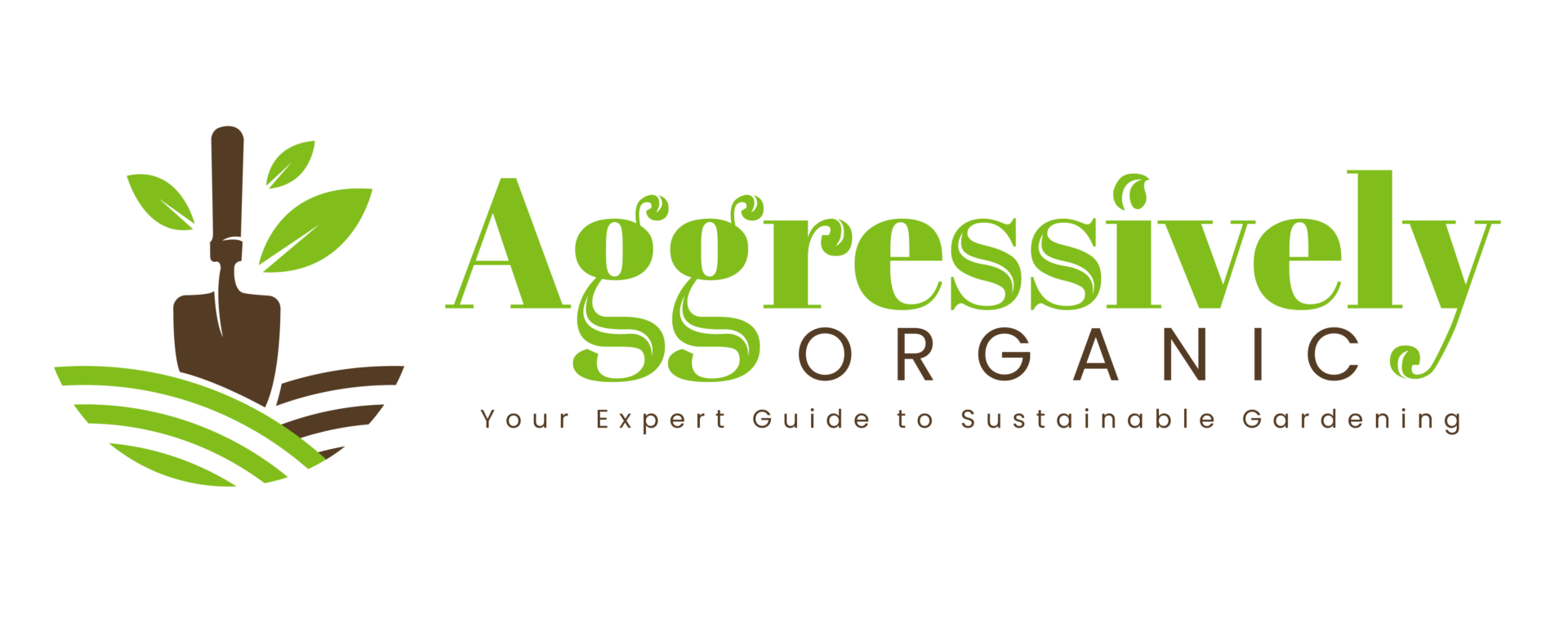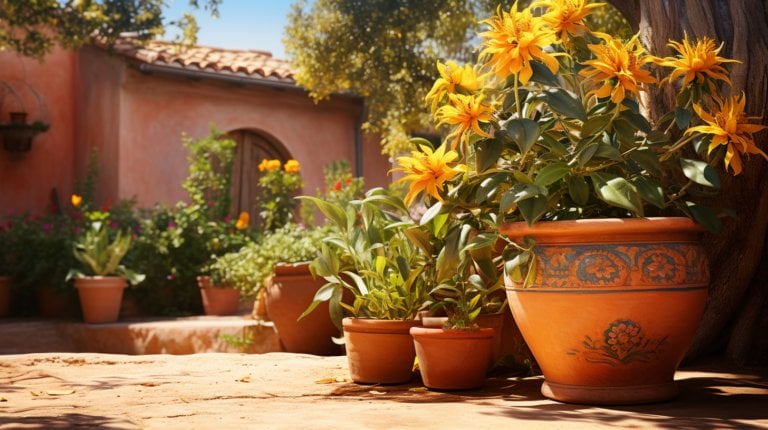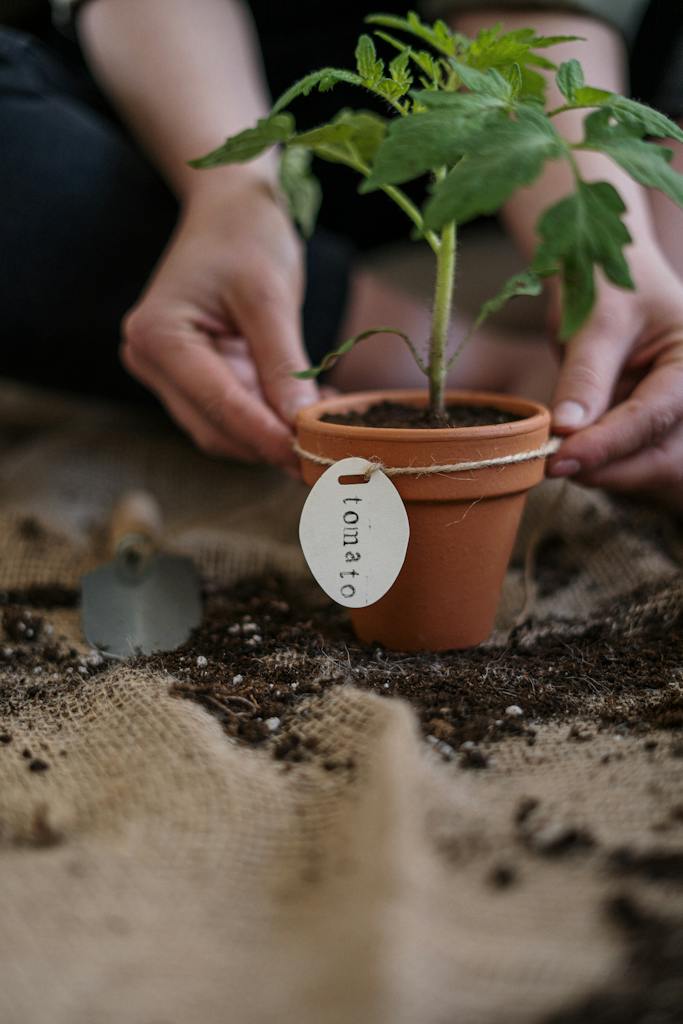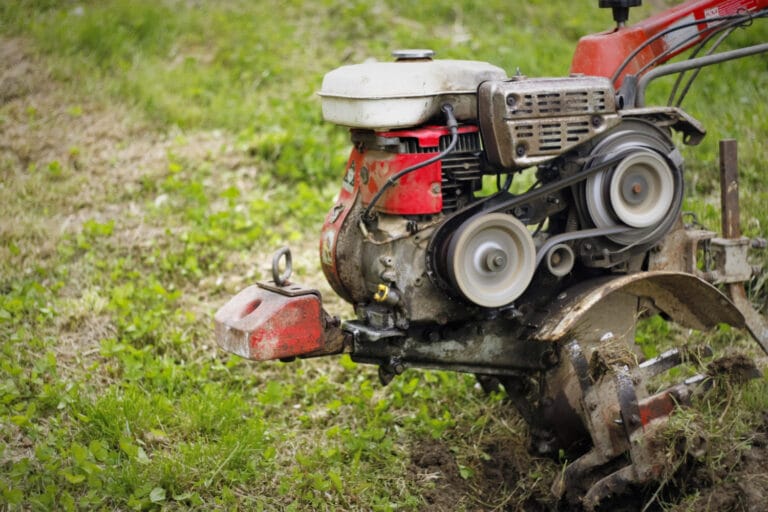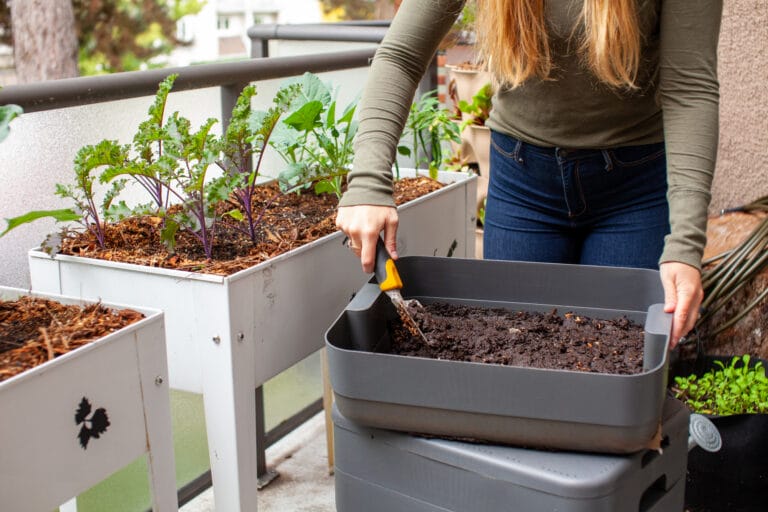What Is Lye Used For In Gardening: Uproot Weeds and Regulate Soil PH
Lye, predominantly recognized for its contribution in soap production, introduced me to unexplored dimensions in gardening, thereby entirely revolutionizing my approach.
It’s not just for uprooting stubborn weeds; it can regulate your soil’s pH too.
I’m excited to share how you can harness the power of lye to improve your gardening game. Let’s delve into the chemistry of lye, and how you can use it to grow a healthier, weed-free garden.
Key Takeaways
- Lye can be used in gardening to uproot weeds effectively.
- It is used to regulate soil pH levels, especially in acidic soils.
- Lye enhances nutrient availability in the soil, promoting plant growth.
- Careful application and monitoring of lye usage is crucial to avoid harming plants and soil.
Understanding the Chemistry of Lye
Let’s get to know lye better, starting with its chemical composition – sodium hydroxide.
We’ll then examine how this compound interacts with the garden soil, plants, and grass.
This is crucial in understanding how lye can help us in gardening, specifically in weed control and soil pH regulation.
Diving into the chemical composition of lye (sodium hydroxide)
To grasp how lye works in gardening, it’s essential to understand its chemical makeup, specifically its primary component: sodium hydroxide. By diving into the chemical composition of lye (sodium hydroxide), we can learn much about its applications.
Sodium hydroxide lye is a strong alkaline substance, which means it can help adjust soil pH, making it more hospitable for certain plants and less so for weeds. The chemical composition of lye also allows it to break down organic material quickly, which is why it’s often used in composting.
Understanding how lye interacts with garden soil, plants, and grass
Understanding the chemistry of lye involves getting to grips with how this powerful substance interacts with garden soil, plants, and grass in our yards.
When lye interacts with garden soil, it breaks down organic material, releasing nutrients that plants and grass can absorb. It’s a potent alkaline substance. It can also regulate pH levels in acidic soils, making them more hospitable for certain plants. However, caution is needed. Too much lye can raise the soil’s pH too high, harming plants and grass.
Thus, knowing how much to use and when to apply it’s vital in gardening. With careful use, lye can be an effective tool to nourish your garden and keep it thriving.
What Is Lye Used For In Gardening?
Let’s now look at how lye acts as a garden soil enhancer.
We’ll first cover its role in altering soil pH levels.
Then, we’ll discuss how managing soil pH with lye benefits plant growth.
Lastly, I’ll share some important safety measures you should take when using lye to enhance your soil.
Role of lye in altering the soil pH levels
In my gardening experience, I’ve found out that lye can significantly bring up the pH level in acidic soil, making it more alkaline. The role of lye in altering the soil pH levels can’t be overstated. It’s a powerful tool when used correctly. It helps regulate pH levels, turning an inhospitable environment into a thriving one for your plants.
Lye can correct the pH levels in acidic soil, making it suitable for plants that prefer alkaline conditions. It’s a quick solution, raising pH levels almost instantly. Lye can improve nutrient availability in the soil. However, be cautious with its usage. Overuse can make the soil too alkaline, harming plants.
Benefits of managing soil pH using lye for plant growth
With the right use of lye, I’ve observed a significant boost in plant growth due to the better pH management of the soil. Lye increases the pH of acidic soil, allowing it to regulate pH levels effectively. This regulation is crucial in gardening as it affects nutrient availability, microbial life, and plant growth.
Here is a simple table to illustrate my point:
| Aspect | Without Lye | With Lye |
|---|---|---|
| pH Level | Unregulated | Regulated |
| Nutrient Availability | Limited | Enhanced |
| Microbial Life | Reduced | Flourishing |
| Plant Growth | Stunted | Accelerated |
In a nutshell, using lye as a soil enhancer in your garden not only uproots weeds but also creates a conducive environment for your plants to thrive. It’s a win-win!
Cautionary measures while using lye as a soil enhancer
Despite the numerous benefits, it’s crucial to exercise caution when using lye in your garden, as incorrect usage can have detrimental effects on both your plants and the soil. Lye, also known as caustic soda, induces a chemical reaction that can unintentionally kill plants if applied directly.
Here’s a list of safety measures:
- Never apply lye directly to plants. Instead, incorporate it into the soil to avoid direct contact.
- Always wear rubber gloves when handling lye to prevent skin burns.
- Dilute lye with water to regulate its strength and prevent over-saturation.
- Monitor the soil’s pH level closely after application to ensure it doesn’t become too alkaline.
Lye as an Alternative to Commercial Fertilizers
So, you’re wondering: can lye be an alternative to commercial fertilizers?
I’m here to compare lye with commercial fertilizers, explore the pros and cons of using lye as a homemade fertilizer, and share some precautions when using lye as a fertilizer.
Let’s get started, shall we?
Comparing lye with commercial fertilizers
I’ve found that lye, a common household compound, can serve as a viable alternative to commercial fertilizers in maintaining garden health.
When considering what lye is used for in gardening, it’s clear that it provides several key benefits:
- Lye, or potassium hydroxide, can regulate pH levels in soil, creating a more hospitable environment for plants.
- Unlike some commercial fertilizers, lye doesn’t introduce harmful chemicals into your garden, making it a safer choice.
- It’s effective at killing grass and weeds, acting as a natural herbicide.
- Lastly, it’s often cheaper and more readily available than commercial fertilizers.
Therefore, if you’re seeking a cost-effective, environmentally friendly way to nurture your garden, lye could be a great choice.
Pros and cons of using lye as a form of homemade fertilizer
While lye offers several benefits as a homemade fertilizer, there are also a few significant drawbacks I need to consider.
For starters, lye’s ability to uproot weeds is a clear pro. It acts as a potent herbicide, eliminating stubborn plants that impede your garden’s growth.
It’s also advantageous in its capacity to regulate pH levels. By increasing alkalinity, lye can balance acidic soils and promote plant health.
However, there are cons tied to lye used for in gardening. It’s highly caustic and can damage plant tissue if misused. Additionally, lye’s potent pH-altering capabilities may lead to over-alkalization if not carefully monitored.
Precautions when using lye as a fertilizer
Given lye’s potent properties, it’s crucial I take certain precautions when using it as an alternative to commercial fertilizers. Particularly when lye is used for in gardening, safety should be at the forefront of my mind.
- I always wear protective gear, including gloves and goggles. Lye can cause severe burns if it comes in direct contact with skin or eyes.
- I make sure to use lye sparingly. Too much can raise the soil’s pH beyond the optimal range, making it inhabitable for most plants.
- I only apply lye to acidic soils. It’s excellent for pH regulation, but not ideal for soils that are already alkaline.
- Lastly, I never forget that lye is a powerful tool for weed control, but misuse can harm beneficial plants.
Lye: A Solution for Growing Healthy Grass
I’ve found that lye can be a real game-changer when it comes to growing and maintaining healthy grass.
There are plenty of real-world examples where this unique approach has been a success.
Let’s get into how and why it works so well.
Exploring how lye helps in the growing and maintenance of grass
In my gardening experience, I’ve found that lye can be a real game-changer when it comes to growing and maintaining lush, healthy grass. A lye solution, essentially sodium hydroxide, can help regulate pH levels in your soil, creating an ideal environment for grass to thrive.
Here are four ways lye contributes to the growing and maintenance of grass:
- Neutralizes Acidic Soil: Lye raises the pH of overly acidic soil, helping grass absorb essential nutrients.
- Enhances Nutrient Uptake: By regulating pH levels, lye helps grass uptake nutrients more efficiently.
- Battles Weeds: Lye can inhibit the growth of certain weed species, giving your grass a fighting chance.
- Promotes Healthy Growth: With regulated pH levels and fewer weeds, your grass can grow healthier and stronger.
Real-life examples where lye has been used successfully in grass growth
From my own backyard to professional golf courses, I’ve seen lye work wonders in promoting healthy grass growth. It’s a hidden secret that lye used for in gardening is a powerful tool to regulate pH levels. One commercial lawn care company I know swears by lye. They’ve seen a significant improvement in grass growth after applying a lye solution, which effectively raises the pH of acidic soils.
In another instance, a neighbor used lye as a weed killer in his lawn. The results were astonishing. He was able to eradicate stubborn weeds while enhancing the growth and health of his grass.
Can Lye Be Used to Promote Plant Growth and Regulate Soil pH?
Lye, commonly used in soap making, should not be used for promoting plant growth or regulating soil pH. However, using rice water for plant growth is an effective natural alternative. The nutrients present in rice water, like nitrogen and potassium, can contribute to healthy plant development while maintaining optimal soil pH levels.
Unique Uses of Lye in Gardening
Now, let’s take a look at some unique uses of lye in gardening that you may not have heard of.
We’re also going to explore some practical tips for using lye effectively in your garden, while ensuring we don’t harm our plants.
It’s time to unlock the surprising benefits and methods of using lye in your gardening routine.
Other uncommon uses of lye for plants and gardening
Aside from its popular uses, I’ve discovered three unique ways to use lye in our gardens that might surprise you.
- Homemade Herbicides: Lye can be used to create homemade herbicides. It’s an excellent way to uproot weeds without harming your plants.
- Compost Accelerator: Lye can help speed up the decomposition process in your compost heap, enriching your soil faster.
- Pest Control: A diluted lye solution can deter pests. It’s a less toxic alternative to chemical pesticides.
- Regulating Soil PH: Often overlooked, using lye in the garden can help regulate pH levels, especially in acidic soils.
These other uncommon uses of lye for plants and gardening can enhance your garden’s health and productivity, showing lye’s versatility beyond just altering soil pH.
Practical tips on how to use lye effectively in your garden while avoiding plant damage
In the realm of gardening, I’ve found that using lye effectively without damaging your plants requires a careful and considered approach. Let’s discuss some practical tips on how to use lye effectively in your garden.
Firstly, use lye sparingly. It’s potent, and overuse can be detrimental. To regulate soil pH, sprinkle a handful of lye over the soil and water it in. This will help neutralize acidic soil.
Secondly, always wear gloves when handling lye to avoid skin irritation.
Lastly, use lye to uproot weeds by applying it directly to the weed. Be careful not to let it touch other plants to avoid plant damage.
Conclusion
So, there you have it, lye isn’t just for soap-making. It’s a versatile tool in gardening, helping to uproot pesky weeds and balance soil pH.
It can even be an alternative to commercial fertilizers and help grow healthier grass. With its unique uses, it’s clear that lye can play an important role in maintaining a thriving garden.
Always remember, cautious use is key due to its highly caustic nature. Happy gardening!
Frequently Asked Questions
What Precautions Should Be Taken While Using Lye in Gardening?
When I’m using lye in gardening, I ensure I’m wearing gloves and eye protection. It’s crucial to avoid skin and eye contact. I also don’t inhale it and keep it away from children and pets.
Can Lye Be Used in Organic Gardening Practices?
In regard to whether lye can be used in organic gardening, it’s a bit controversial. While it can regulate soil pH and eliminate weeds, it’s not typically considered an organic substance.
Are There Any Specific Plants or Vegetables That Benefit More From the Use of Lye?
In my experience, plants that thrive in alkaline soils, like cabbages, cauliflower, and asparagus, benefit more from lye application. It raises soil pH, making conditions more favorable for these specific crops.
How Often Should Lye Be Applied in a Garden?
In my garden, I don’t use lye regularly. It’s potent stuff! I only apply it when I’m battling stubborn weeds or need to adjust soil pH. Always test your soil before use to avoid over-application.
How Does Lye Impact the Local Wildlife and Insects in the Garden?
In my experience, lye can negatively impact local wildlife and insects. It’s caustic and can harm creatures directly exposed. It’s crucial to use it sparingly and carefully to avoid unintended harm to beneficial garden inhabitants.
